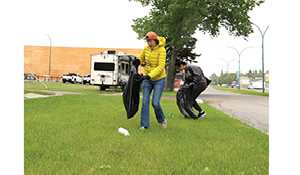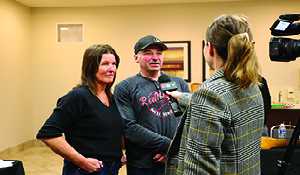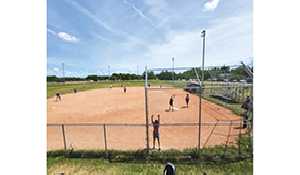Karyn’s story: One woman’s story of how she survived the ’60s Scoop, Residential School, and the Prison for Women in Kingston, and finally found her freedom
November 17, 2017, 9:25 am
Donna Beutler
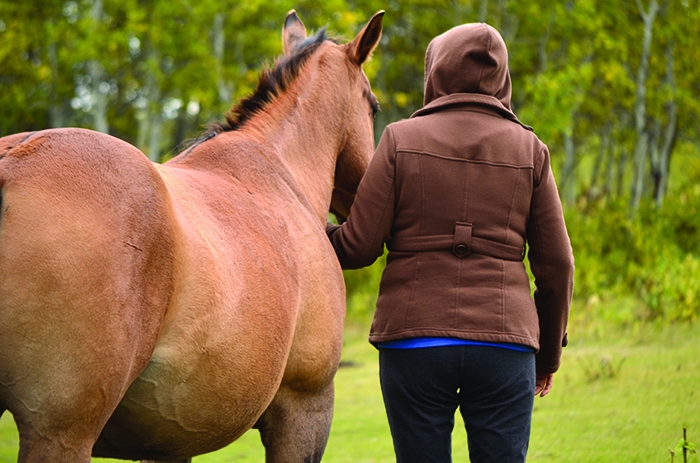

Evenings were always the hardest.
Karyn (not her real name) spent her evenings swinging on the outdoor swings near the residential school she had been taken to, wishing and praying that her parents would miraculously drive up and take her and her siblings home.
Karyn kept on wishing, but it would be a long time before her mom came for her.
As loneliness and questions about what was happening overtook her, her only solace was that four of her siblings were in the same place—a residential school not far from the only home she had ever known, that of her First Nations family—a family of 14 ripped apart by a system that left them broken, isolated from family, and unsure of what was happening to them and most of all, why it was happening.
There was little solace in having her siblings nearby however, because for the most part they could seldom offer each other comfort in times of distress as they were often kept apart.
There were times they could be together though, and Karyn remembers how her older sister and her tried very hard to stay close—often swinging together during those lonely evenings. She describes feeling so lost during this time in her life.
It was during the ’60s that Karyn and her siblings were picked up from their home on a Qu’Appelle Valley area reserve in southeastern Saskatchewan by a man and two women, presumably from Social Services Karyn believes, and taken to a residential school.
They went with just the clothes on their back. No bag. No suitcase. No sentimental items to hang on to.
“What is happening?” Karyn asked herself. “Why is this happening?” she wondered.
Taken from home at five
Karyn, now 53, had no idea what was going on or why she had been taken from her family. She was about five years old at the time, she thinks.
“We were so afraid of what would happen,” Karyn said of the fears she and her sister had.
“Everything was very regimental (at the residential school). We had to get up early, the nuns would force us to take pills. Maybe they were vitamins, I don’t know,” she said. “If we cried or didn’t take the pills, we would be disciplined,” she said of her time at the residential school (approximately two or three years).
“We had to put our aprons on and we were marched down to a common room. There were no chairs; we just had to stand there until breakfast was called. We weren’t allowed to talk to others; we just had to sit there and eat.”
Tears overwhelmed Karyn as she recalled a day at the residential school when she was not feeling well. She tried to tell the nuns she was sick, and her brother came over to her and tried to comfort her.
“They grabbed him,” she said as she told the story. “The look in his eyes was one of helplessness.” She was taken to her room where she spent the next couple of days. “You couldn’t do anything,” she said of her brother’s attempted intervention. “I got used to the physical, the yelling,” Karyn added, “but not the emotional.”
One day, after being at the residential school for about two or three years, her mom arrived. She recalls a priest being there that day.
“My mom told us kids we were going with her. I was ecstatic,” Karyn recalls. Finally, she was going home.
Not all well on the home front
But all was not well on the home front either. When Karyn and her siblings arrived home, one of her older sisters was sitting at the table, crying.
Their father and one of their brothers had been injured in a stabbing incident.
This was a pivotal moment in the family’s life—they locked up their house and moved to Regina.
Life in the city was a troubling time for Karyn and her family.
Karyn’s mother began drinking and their home life became chaotic—with fights and people constantly coming over to the house.
Alcohol was a constant and Karen, at the tender age of seven, was often left alone to care for her younger siblings, locking them in a bedroom to keep them safe while she scoured for empty pop bottles to turn in to buy milk.
Her father, with whom she was very close, tried hard to keep the family together, working and trying to care for the children.
He would always assure them that everything would be okay.
But his assurance was short-lived and Karyn’s last memory of her dad is an extraordinarily sad one.
Her parents were arguing and her mother left the house. Karyn’s dad made her promise not to follow him to another room, but eventually she did, only to find him sitting in a closet, totally unresponsive.
His eyes were closed and his feet weren’t touching the ground, Karyn recalled.
Her screams brought her brothers to the room. Her father had hung himself.
‘All hell broke loose’
“When Dad died, all hell broke loose. It was just chaos,” Karyn said. “When I was younger, Mom was loving and affectionate. After Dad died, she drank more and more. There was no physical or sexual abuse in our home, but nothing was right. I went to school, but irregularly,” she said of her early school years in Regina.
If life after her father’s death was hell, soon life would get even crazier for Karyn and her family.
In what is known today as the ’60s Scoop,’ Karyn and an older sister and her younger brother and sister were taken from their family to a foster home.
Their photos were put in the paper.
They were being put up by Social Services for adoption.
“That first foster home was hell. If we didn’t comply with ‘the rules,’ we were beaten. Our foster dad was sexually abusive; our foster mother was physically abusive,” Karyn said of her life in foster care.
“What bothered me was if my siblings were getting beaten, I couldn’t help them. My older sister tried to shield and protect us and she took the brunt of the sexual abuse. When she left at 16, she made me promise not to let him (their foster dad) touch the younger ones. I knew what she meant. But once she (her older sister) left, I took the sexual abuse.
“Many nights we didn’t sleep,” Karyn said of those dark and terrifying nights. “We wrapped ourselves up like cabbage rolls in our blankets,” praying that that would keep them safe from the sexual abuse. It didn’t.
Their life on the dairy farm they lived on meant working hard but thankfully it also meant being well fed and having free time to roam the fields and make tree houses and do the things children love to do.
At the same time, they were ‘kept in their place’ and they understood that they weren’t really part of the family.
“We weren’t allowed to eat with our foster family in the dining room. We ate in the kitchen, separate from them.” Their foster family’s children were older and had already left home except for one—a son. This was someone who she couldn’t protect her younger brother from. It was a long six years there.
“Though I learned lots about the farm there, I constantly wondered why I had been taken from my family.”
Runaway
“When I was 12, I realized I needed to get my younger siblings out of there,” Karyn said. “I packed warm clothes for my brother and sister and myself and ran away—three times. When Social Services spoke to my foster family, all I heard them say was that I was nothing but a trouble maker. Even my pleas to the social workers went unheard. They didn’t believe me and oh, the fear I felt when I told them. I knew I would get it after.”
On Karyn’s third attempt, she and her younger siblings were picked up by a police officer.
She begged him not to take them back to their foster home but he began to drive in the direction of their foster home.
“I was heartbroken as he headed in that direction,” Karyn said as she recalled that day.
“Suddenly he spun the car around and took us to a safe house in Regina. I was so thankful he believed us. The people at the safe house were so happy to see us. Kids there were happy and smiling. They bathed us and gave us clean clothes. I thought to myself, ‘this is a new beginning.’”
Karyn and her two siblings were at the safe house for a few days before Karyn was placed with a new foster family. By that time, Karyn, just 12, was an angry child. Her new foster parents, however, were very loving and caring and her new foster mom would always encourage and support her.
“We went to church every Sunday,” Karyn said of life with her new foster parents. “I always prayed and I knew there was a God. I was the only First Nations kid in my school and there were racist kids there. I wanted to run away. But I stayed, excelling in lots of sports.”
Karyn’s foster parents are now gone, her mom having passed away just this spring, but one thing was certain, they always encouraged her and supported her all through her life.
Karyn was ecstatic to have her younger brother and sister come to live at her new foster home but it didn’t last. Her foster mom could see that Karyn wouldn’t allow her to be a mother to her siblings and soon her siblings were sent to other foster homes. Karyn also had foster siblings and to this day, her four foster brothers and one foster sister keep in touch.
Feeling locked up
Karyn says her years in the foster system left her always feeling locked up. What she really wanted was to be free.
And even though her foster parents never drank, fought or argued and she had a good home life, she still wanted to ‘be free.’
At 15, Karyn left home. It was the late ’70s and Karyn fell into alcohol, partying and theft.
When she was caught stealing, she was sent back to her foster family.
But everything had changed. She had seen the darker side of life and her mom told her she had a choice to make.
That’s when Karyn decided it was time to see her biological family. Social Services took her to the city, to the home of her older sister. Finally she was back with her real family.
Being back with her real family, though, was not all sunshine and roses.
There were no rules and the house was often full of people drinking and partying.
Karyn went to school but there was no one offering her guidance. Often there was little food.
“I would phone Mom and Dad,” Karyn said of her foster parents. “They wanted me to go to school, to college, but no one was going to tell me what to do because I was free now.”
Karyn got her first job as a dishwasher at 16.
Her biological mother was often drunk or hungover. They didn’t really know each other at all. Eventually, Karyn got her own apartment.
“I met my first husband when I was 16; he was 25,” Karyn said. “By the time I was 22, we had had three children. We were on social assistance and he was drinking a lot. I tried to keep him sober for five years but then I began to feel helpless and that feeling of having no freedom hit me again. I left him.”
Karyn was just 26 at this time and, still on social assistance, began to steal clothes for her children. “I couldn’t afford the things I wanted for them,” she says.
Downward spiral
A downward spiral began. Karyn was caught stealing but wouldn’t make her court appearances.
She started drinking and at the same time as she felt free and able to do her own thing, she also felt lost. But whatever freedom she thought she had was gone—she was sentenced to six months in jail.
While in jail she tried to escape, took a guard hostage, and started a riot.
“Shackled, handcuffed and padlocked, I was flown from airport to airport until I reached Ontario and was placed in the Prison for Women in Kingston,” Karen said, recalling walking through the airports shackled.
“My husband had our children but they were taken away from him and placed in foster care. Even though I felt so defeated, I didn’t get into prison stuff like drugs and drinking. I prayed that God wouldn’t let anything bad happen to my children. And then I got a lawyer to get my children out of foster care and into the care of a social worker friend of mine.”
Once released from prison, her social worker friend told her she needed to sober up.
A new start
It was 1990 and Karyn went to a Saskatchewan detox centre, got her kids back and met her second husband.
“Things were good. My husband, the first Native man I ever dated, was going to university. He had his own apartment, his own car, his own food,” Karen said.
She went back to school and was so happy to have her children back. “The values Mom and Dad (her second foster parents) taught me were what I taught my children. When my husband and I started having problems, I felt such emptiness. I hated evenings. I felt so lonely in the evenings, just like the evenings when I used to sit on the swing at the residential school. I couldn’t sleep in darkness and still to this day I sometimes can’t sleep in darkness. I remembered the sexual abuse from the residential school and wondered, ‘where is my freedom?’”
Karyn was, in her own words, stubborn.
No man was going to tell her what do to.
She simply didn’t want to worry about a man.
Her drinking started again after seven years of sobriety. By now she had a fourth child to care for and she was trying desperately to keep it all together.
Her parents encouraged her to get herself together. At this point in her life, back on social services, she asked her husband to care for the children and she went back into detox, leaving when she began drinking again.
“I brought the kids to where I was living,” Karyn explained. “We had a good life. I sobered up, got a job. But still, I didn’t feel free.”
When Karyn began drinking again, she sometimes drank their food money and soon her children were back in her husband’s care.
Alcohol and drugs
Before long, Karyn wasn’t just abusing alcohol, but drugs too.
The father of her fifth child was a cocaine dealer, and one night, after “all hell broke loose,” Social Services took her youngest child from her.
The baby was just one month old.
“I fell apart,” she said of those dark days. “I just couldn’t get it together. That’s when I prayed, ‘Dear God, stop this roller coaster. I don’t care what you do, just stop this.’ God answered my prayers,” Karyn said with a bit of a chuckle.
“I tried to rob a confectionary but I couldn’t even do that right.”
Karyn was charged with armed robbery and sentenced to four years for that and drug charges.
While Karyn wondered if she would ever get her life straightened around, the start of healing didn’t begin until she went to a healing lodge and began to speak about her life and all that she had been through.
She knew she had to quit running and to start dealing with her past.
Finally Karyn got honest with those who were trying to help her and more importantly, she got honest with herself.
‘My faith saved me’
“Every morning, we had a talking circle where I started being open and honest. It didn’t matter anymore what had happened,” Karyn said.
“Even though I was in jail, I started getting a sense of freedom. I have seen some horrible things in life; I’ve seen the dark side of life, but my faith in God saved me. Even in my dreams and my nightmares, I always was able to call on God. I may have been angry and very hurt, but I have a big heart,” she said.
In 2010, Karyn went to court to get her residential school settlement.
Looking back on this experience, she says she wished she hadn’t gone to court.
“I felt like I had to defend myself that I was telling the truth,” she said of that experience.
This was a tough time for Karyn and others like her. She felt that because she was well dressed and appeared “fine,” that they didn’t see the pain that she had carried with her for so long.
Karyn was no stranger to pain and she would soon have to pull from her faith and a strength deep inside to get through the next traumatic and trying time.
Death of a daughter
Karyn, in her 40s, was devastated when she was told of the death of her 28-year-old daughter in a vehicle accident. She was mad at God and heartbroken.
Why had something so awful happened to her daughter? It was unbearable.
It was also a pivotal moment in life for Karyn because she decided to go back to school and get her education—not just for her, but for her daughter’s memory as well. She was hindered in her job-seeking by her criminal record and while she sought a pardon, she came across a job that she thought would fit her perfectly—one that would take her to the very streets she had left.
At first, it didn’t look promising but shortly after her interview, she got a call that offered her a great opportunity to help others.
A chance to help others
“I got off the streets,” Karyn said, “and now I am back on the streets—in my job.”
Her job is to help people in the same types of circumstances she was once in. “This is where I’m meant to be,” she said of the work she does now. “I hear my clients tell their stories and I think, ‘You’re telling my story.’”
Karyn had a dream to “go back home,” not necessarily to her home reserve, but to somewhere nearby. As this dream began to grow, she met someone who would eventually become her husband.
“I always thought men were trouble,” Karyn said. And while her new relationship had some bumpy moments to start with, she knows that his “patience and love” have helped take them to this point in their lives—a marriage based on love and trust. “He told me to ‘take the chance on love’ and finally I did.”
“I will never be able to fix the world,” Karyn concluded, “but I am learning how to help.” And the best part of it all, she says, is that “I have finally found my freedom.”
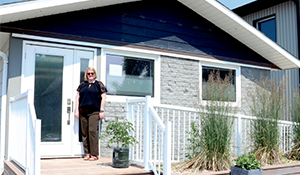
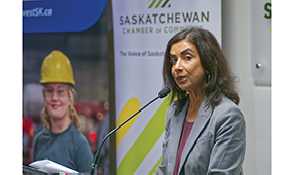

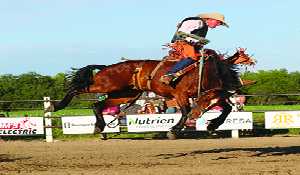





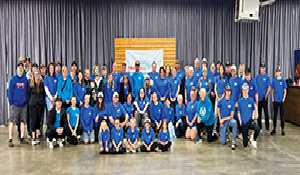
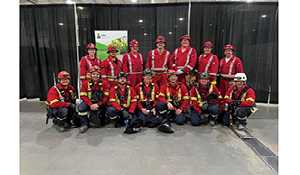
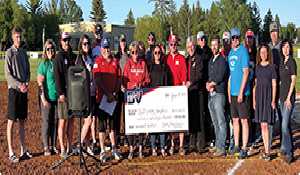

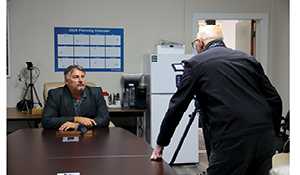

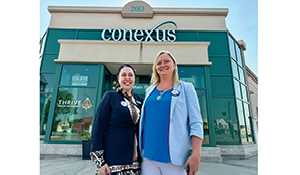
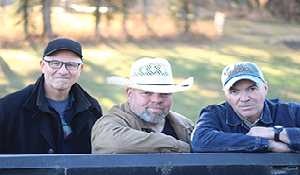


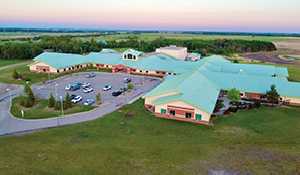

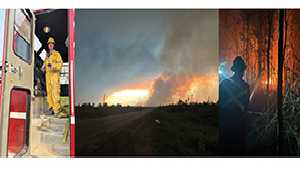

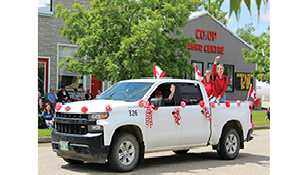
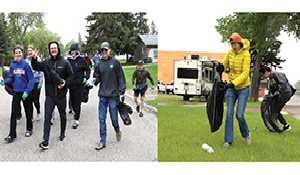
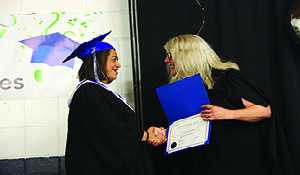
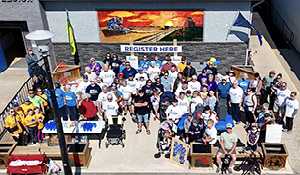
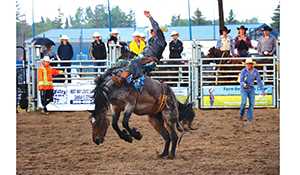
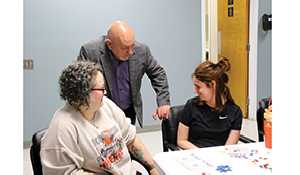
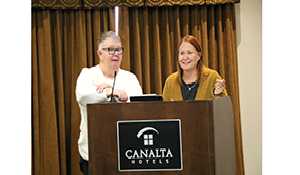

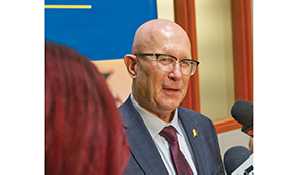
SM.jpg)
